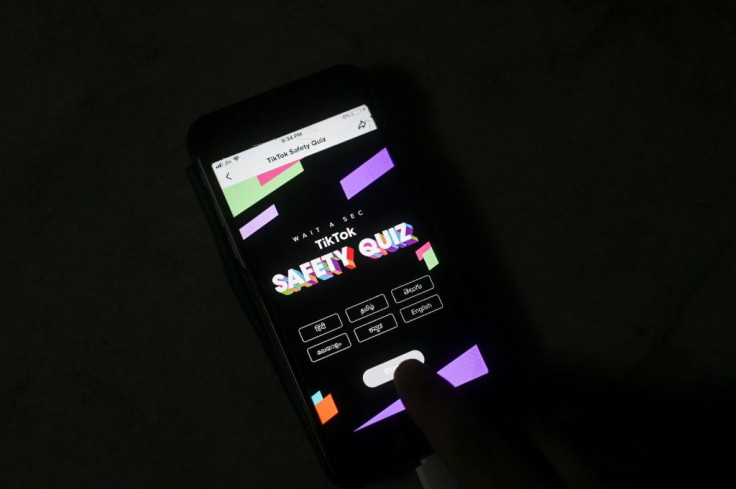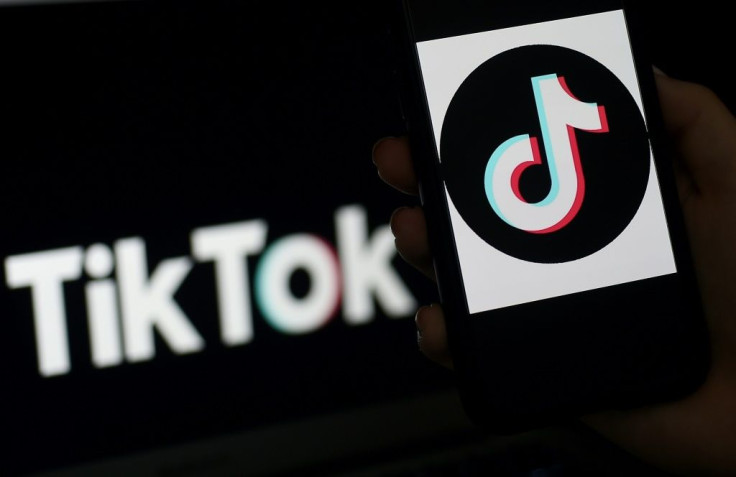The US Is 'Looking At' Banning Chinese-Owned Apps, Secretary Of State Mike Pompeo Says

KEY POINTS
- Secretary Of State Mike Pompeo told Fox News the administration might ban Chinese-owned apps
- One of the apps under consideration is the popular video app TikTok over concerns of alleged data sharing with the Chinese government
- Despite being owned by Chinese multinational ByteDance, TikTok maintains it operates separately from its parent company
Secretary of State Mike Pompeo says the U.S. is “looking at” banning various Chinese social media apps for allegedly sharing information with the Chinese government. This would include the popular video app TikTok, which is owned by the Chinese multinational ByteDance and which was blamed by the Trump campaign for keeping attendance down at his recent rally in Tulsa, Oklahoma.
“With respect to Chinese apps on people's cellphones, I can assure you the United States will get this one right too, Laura,” Pompeo told Fox News’ Laura Ingraham on Monday. “I don't want to get out in front of the President [Donald Trump], but it's something we're looking at.”
Despite criticism by Pompeo and other U.S. officials for allegedly putting “private information in the hands of the Chinese Communist Party,” TikTok has repeatedly called these statements “unfounded.”
Owned by ByteDance, TikTok has previously said it operates independently from the Chinese multinational. Most of its data centers are in the U.S., with a backup center in Singapore, and are not subject to Chinese data laws. The actual app is not available in mainland China despite being downloaded over 2 billion times worldwide.
“TikTok is led by an American CEO, with hundreds of employees and key leaders across safety, security, product and public policy here in the U.S.,” TikTok said in a press release Monday. “We have no higher priority than promoting a safe and secure app experience for our users. We have never provided user data to the Chinese government, nor would we do so if asked.”
TikTok’s assurances haven’t been enough to protect it from backlash overseas, though.
The app was one of 58 Chinese-owned apps banned in India after skirmishes between the Indian and Chinese militaries along the Sino-Indian border killed at least 20 Indian soldiers.
Inside the U.S., TikTok has been partially blamed for the poor turnout seen at President Trump’s Tulsa rally on June 20. A social media stunt on TikTok was organized several days before the rally, encouraging users to register for the event’s free tickets and not appear. Registration was high enough for Trump to brag on Twitter that nearly 1 million people had requested tickets.
The Trump campaign pushed back against the role TikTok users may have played in the event’s low turnout, also blaming it for possibly“violent protests” outside the rally.
“We had legitimate 300K signups of Republicans who voted in the last four elections,” a campaign spokesperson said. “Those are not [TikTok] kids. It was fear of violent protests. This is obvious with the lack of families and children at the rally. We normally have thousands of families.”
Trump and the campaign discounted the danger of possible coronavirus infection played a role.
Pompeo’s statements are reflective of the renewed tensions between the U.S. and China due, in part, to the coronavirus pandemic. Alleged data monitoring and sharing have been a regular point of concern for U.S. officials, repeatedly taking aim at Chinese companies over sharing user information with the Chinese government.
Smartphone-maker Huawei has been targeted multiple times by the U.S. government, being subpoenaed in 2019 by the U.S. Department of Justice for alleged technology theft around the EnVizion360 camera.
Camera designer Rui Pedro Oliveira alleged the EnVizion360 was based on a design he had patented in the U.S. Oliveira met with Huawei representatives in 2014 to pitch his camera design but was turned down.
“Huawei categorically rejects Mr. [Rui Pedro] Oliveira's claims of patent infringement, and has provided detailed documents in support of its stance,” Huawei said in an August 2019 press release. “Nevertheless, Mr. [Rui Pedro] Oliveira proceeded to feed a false narrative to the media in an attempt to tarnish Huawei's reputation. He made further efforts to exert pressure on Huawei through senior government officials, trying to make the company cede to his demands and hand over large sums of money.”

© Copyright IBTimes 2025. All rights reserved.




















